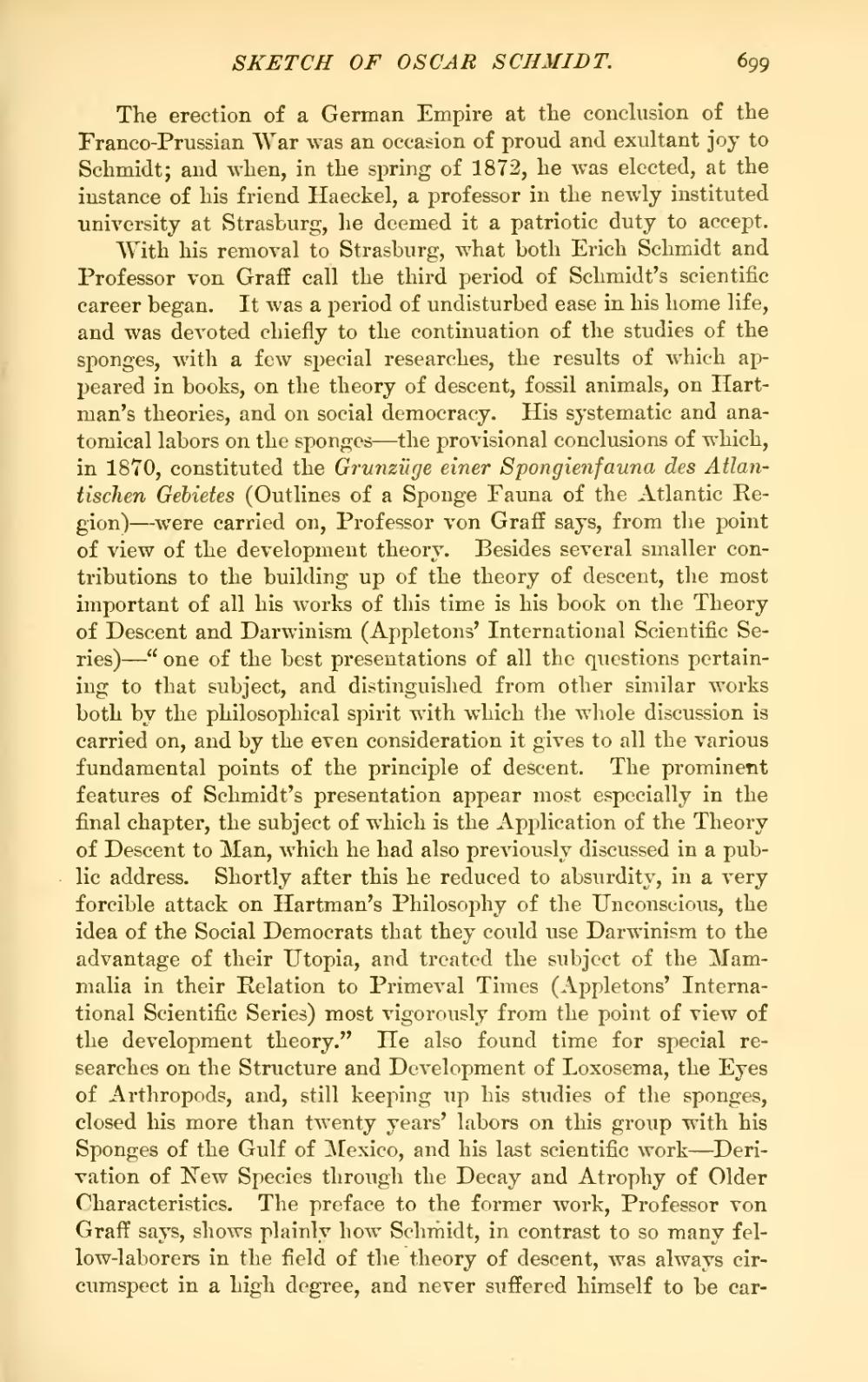The erection of a German Empire at the conclusion of the Franco-Prussian War was an occasion of proud and exultant joy to Schmidt; and when, in the spring of 1872, he was elected, at the instance of his friend Haeckel, a professor in the newly instituted university at Strasburg, he deemed it a patriotic duty to accept.
With his removal to Strasburg, what both Erich Schmidt and Professor von Graff call the third period of Schmidt's scientific career began. It was a period of undisturbed ease in his home life, and was devoted chiefly to the continuation of the studies of the sponges, with a few special researches, the results of which appeared in books, on the theory of descent, fossil animals, on Hartman's theories, and on social democracy. His systematic and anatomical labors on the sponges—the provisional conclusions of which, in 1870, constituted the Grunzüge einer Spongienfauna des Atlantischen Gebietes (Outlines of a Sponge Fauna of the Atlantic Region)—were carried on. Professor von Graff says, from the point of view of the development theory. Besides several smaller contributions to the building up of the theory of descent, the most important of all his works of this time is his book on the Theory of Descent and Darwinism (Appletons' International Scientific Series)—"one of the best presentations of all the questions pertaining to that subject, and distinguished from other similar works both by the philosophical spirit with which the whole discussion is carried on, and by the even consideration it gives to all the various fundamental points of the principle of descent. The prominent features of Schmidt's presentation appear most especially in the final chapter, the subject of which is the Application of the Theory of Descent to Man, which he had also previously discussed in a public address. Shortly after this he reduced to absurdity, in a very forcible attack on Hartman's Philosophy of the Unconscious, the idea of the Social Democrats that they could use Darwinism to the advantage of their Utopia, and treated the subject of the Mammalia in their Relation to Primeval Times (Appletons' International Scientific Series) most vigorously from the point of view of the development theory." He also found time for special researches on the Structure and Development of Loxosema, the Eyes of Arthropods, and, still keeping up his studies of the sponges, closed his more than twenty years' labors on this group with his Sponges of the Gulf of Mexico, and his last scientific work—Derivation of New Species through the Decay and Atrophy of Older Characteristics. The preface to the former work, Professor von Graff says, shows plainly how Schmidt, in contrast to so many fellow-laborers in the field of the theory of descent, was always circumspect in a high degree, and never suffered himself to be car-

